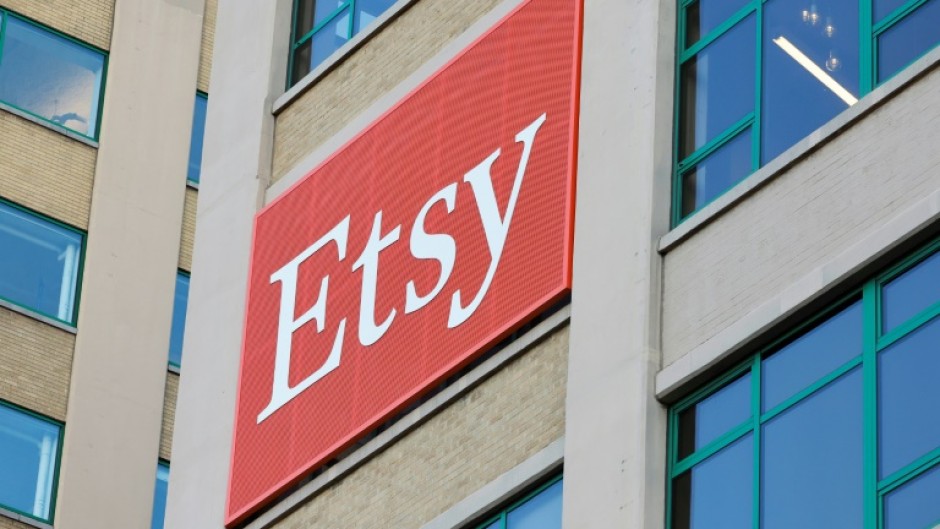WASHINGTON - Conspiracy theorists who believe in a secret cabal of child sex traffickers have set their sights on yet another online retailer: Etsy, a website best known for selling handmade items.
Social media users point to what they say are "suspicious listings" on Etsy -- including downloadable images of pizza selling for thousands of dollars -- as evidence that the platform is selling children to be abused.
"Don't let them gaslight you anymore," said one QAnon supporter sharing screenshots from the website on X, formerly known as Twitter, during the busy holiday shopping season.
The rumors build on the long-debunked "Pizzagate" conspiracy theory, which falsely linked a pizza restaurant in Washington to an underground child sex trafficking ring involving high-ranking Democrats.
The narrative culminated in 2016 when a North Carolina man opened fire at the restaurant without striking anyone, later saying he intended to investigate the supposed crimes. He was subsequently arrested and sentenced to several years in prison.
Etsy denied the trafficking claims in a statement to AFP. The company said it found no evidence of a risk to child safety but removed the pizza-related posts because they did not appear to be legitimate.
A similar false theory emerged in 2020, accusing online retailer Wayfair of conducting a sex trafficking operation under the guise of furniture sales. In that case, social media users also shared screenshots of items with seemingly exorbitant prices.
No evidence has emerged to link either retailer to human trafficking, but the allegations have taken off among supporters of the baseless QAnon conspiracy theory. Public figures such as commentator Liz Crokin and former national security adviser Michael Flynn have amplified them.
"It used to be the conspiracies kind of died with the fanatics that attempted to spread them. Social media just magnifies and speeds up the process," said Bond Benton, an associate professor of public relations at Montclair State University and an expert on extremist groups.
"This sort of mentality takes us to a really dangerous place where I can sort of rationalize violence against people that I don't like."
- The Musk factor -
The Etsy claims come on the heels of a renewed interest online in child trafficking theories -- thanks in part to a shoutout from Elon Musk.
"Pizzagate is real," said a meme the X CEO shared in late November.
Mike Fenster, a law professor at the University of Florida and a conspiracy theory expert, said influencers often latch onto QAnon-related narratives to boost their likes and followers on social media.
Benton said the correlation between Musk and the Etsy claim is "undeniable."
Research he conducted with Daniela Peterka-Benton, director of the Global Center on Human Trafficking, found Musk's posts increased Pizzagate-related activity on X by more than 9,500 percent from the month prior.
Peterka-Benton said these conspiracy theories "have painted a distorted picture of what human trafficking is" and can affect funding, policies and public perception in ways that harm victims.
One reason such narratives have such a long shelf life is because their promoters often encourage others to research the topic on their own.
"The research is not really 'doing your own research.' It is connecting the dots, a carefully laid-out trail by conspiracy people online," Benton said.
- by Natalie Wade

